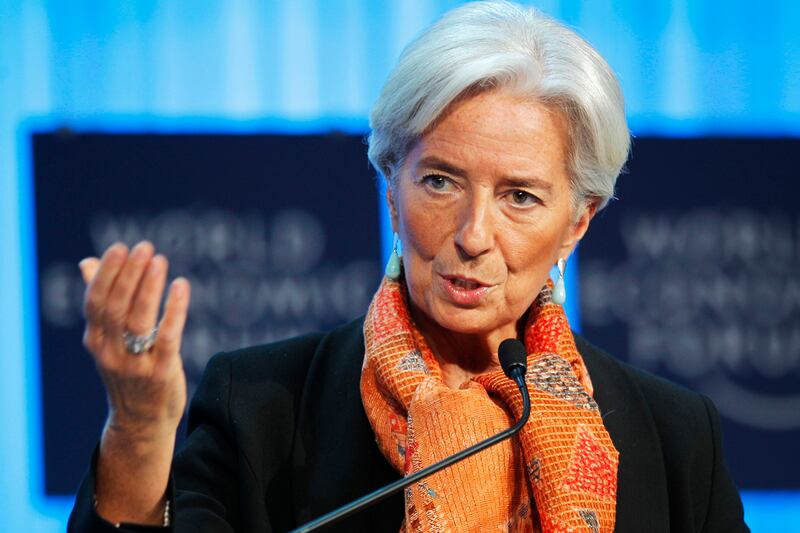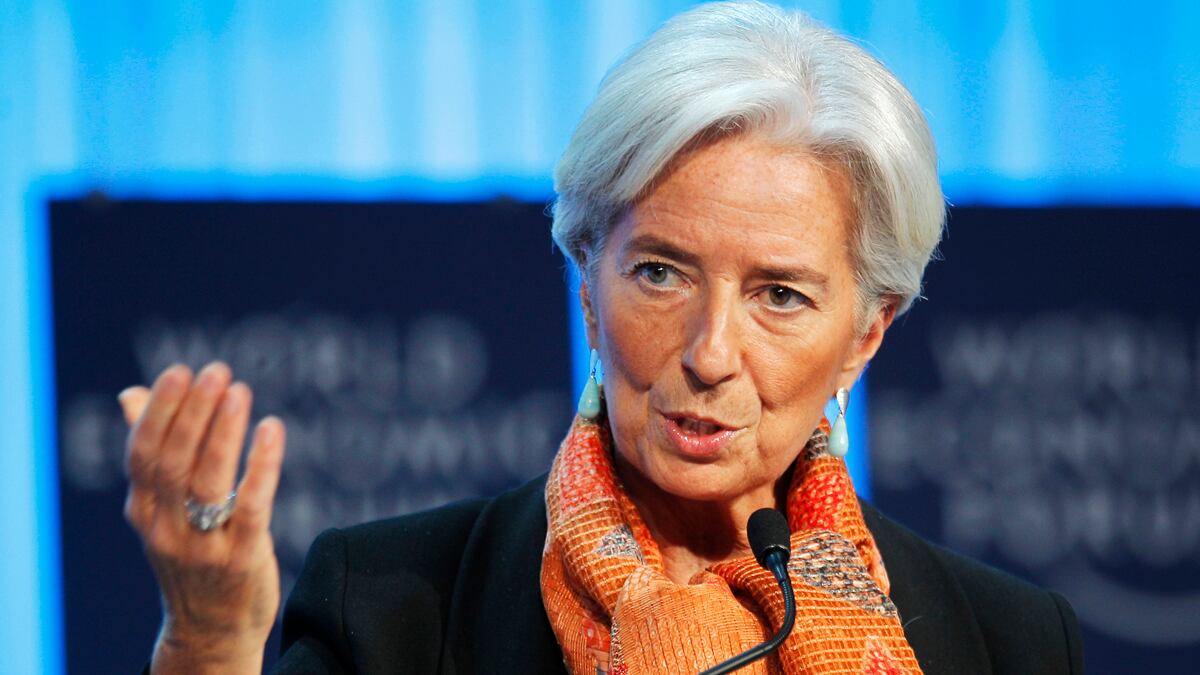“If someone says a rhinoceros is coming in two seconds, we worry,” a Buddhist monk told me on the sidelines of the World Economic Forum at Davos, Switzerland, last week. “But if you say a rhinoceros is coming in 20 years, nobody moves.”

Ah, the wisdom of the East makes even the most obvious truism sound exotic. But the phrase kept rattling around in my head at the annual gathering of the putative elite of the elite of the crème de la crème of global politics and business. As Davos whimpered to an end on Sunday, it was clear the masters of the universe have been mastered by a universe they no longer understand. And for all the talk about leadership going into this meeting, there was a wealth of ignorance going out. Indeed, it’s far from clear that the European leaders at the formal summit in Brussels meeting Monday will do any better.
Everyone knows at least one rhinoceros is coming, but there may be a whole herd on the way, with each more dangerous than the next. And while they might not arrive in two seconds, they could be in our faces in a matter of months or weeks or even days. Yet some of the most important players— the ones critical to building the defenses to keep the beasts at bay—act as if they might have 20 years to spare. “I have been in public service—most of which involved public finance—for over four decades,” said Donald Tsang, president of the Executive Council of Hong Kong. “Let me share with you: I have never been as scared as now about the world.”
The panel on which he spoke, the definitive “Outlook for the Global Economy 2012,” moderated by the ever-brilliant, ever-caustic Martin Wolf of the Financial Times, had a great range of stars from politics and finance, including Ali Babacan, the deputy prime minister of Turkey, Christine Lagarde of the IMF, British Chancellor of the Exchequer George Osborne and World Bank President Robert Zoellick.
But there was not a single representative of the eurozone countries or the United States. German Chancellor Angela Merkel had opened the conference by cautioning that Germany will not make promises it cannot keep—which suggests that it won’t make commitments that Europe needs but the German people don’t want. German Finance Minister Wolfgang Schäuble reiterated that position with his talk of “steady policies,” rather than massive firewalls of the kind that Lagarde and others are promoting. The absent German voice on the closing panel quickly became the elephant that wasn’t in the room.
So, back to the rhinos.
First there’s little Greece, still so wild and unpredictable, which has yet to find a definitive way out of the debt crisis that first erupted in 2009 and has been threatening ever since to spread like a fatal contagion throughout southern Europe. A critical deal with private sector creditors might be reached today, coincident with the Brussels confab, but nobody is holding his or her breath. “The fact that we’re still—at the beginning of 2012—talking about Greece, again, is a sign that this problem has not been dealt with,” said Britain’s George Osborne, “The danger here is that the tail wags the dog throughout this crisis. In other words, the inability to deal with a specific problem in the periphery causes shock waves across the whole European economy and the world economy.”
Then there’s the thundering herd of creditors faced by other countries. The 17 eurozone governments and banks combined need to raise an estimated 1.9 trillion euros (about $2.4 trillion) in new financing in 2012 alone—and most of it before April. At the end of last year, almost nobody wanted to buy the bonds of the southern European countries. Then the European Central Bank started spreading around so much money—500 million euros at bargain rates—that private financial institutions breathed a little easier. Some started buying the downgraded (one is tempted to say “degraded”) bonds of Italy and Spain, and that relieved a little pressure. But tossing out easy money to the banks is like throwing carrots to the herd to keep it distracted. The threat of an overwhelming stampede has only been averted temporarily.
The great, lumbering beast that is slow growth is another enormous challenge that nobody has quite figured out how to tame. Everyone knows that the only way out of the crisis over the long term is through growth, but that only comes when there is enough confidence in the finances of a country to get credit flowing, and that’s hard to do when it is mired in a morass of iffy, expensive debts. As Mark Carney, governor of the Bank of Canada and chairman of the Financial Stability Board notes, the impact of the euro-zone crisis will probably shave about 1 percent off the global GDP by the end of 2012. “We’re all going to feel this,” said Carney, “and that’s in a world where this crisis is contained, and containment is different than resolution.”
As we’ve seen over the last, disastrous year, electoral politics in countries with big economies, and even small ones, can push the herd that’s in the market-place to the edge of panic and beyond. The fact that the United States and France—and Greece!—are all headed toward elections this year is deeply problematic. Already we saw the crazy risks taken over the debt ceiling debate in Congress last summer, which lead directly to a decline in the American credit rating. Now French President Nicolas Sarkozy, trying to strike a populist line at the end of a very unpopular first term, is talking about imposing a unilateral tax on financial transactions. Add to that the potential uncertainties about a new leadership taking over in China and, whoa, there’s a whole lot of scary noise in the globalized jungle.
Did we mention Iran? There may be arguments about the long-term effects of a war in which Israel and—inevitably—the United States attack the mullahs’ nuclear installations, but there’s no question it will cause a spike in oil prices at a time when the world can ill afford it. Or, how about North Korea? Nobody really knows how the new leadership there will try to prove itself, but past experience does not augur well for the future. The list of sudden shocks that could put crippled economies on life-support is long.
So the answer that the IMF—and just about everyone else—keeps coming back to is the idea of a “firewall” that will keep the beasts of the marketplace at bay. The more money there is ready to move when there’s a stampede on a nation’s credit, the more likely the danger can be averted. “If it is big enough, it will not get used,” said Lagarde. But few governments want to take the lead contributing to a really massive defensive barrier, and the biggest and richest—the Germans, the Americans and Chinese—are singularly unenthusiastic about the trillion-dollar wall that Lagarde would like to see, which, even at that, may not be big enough. So it probably will be much smaller than needed, and with holes. And the rhinos out there know it.






